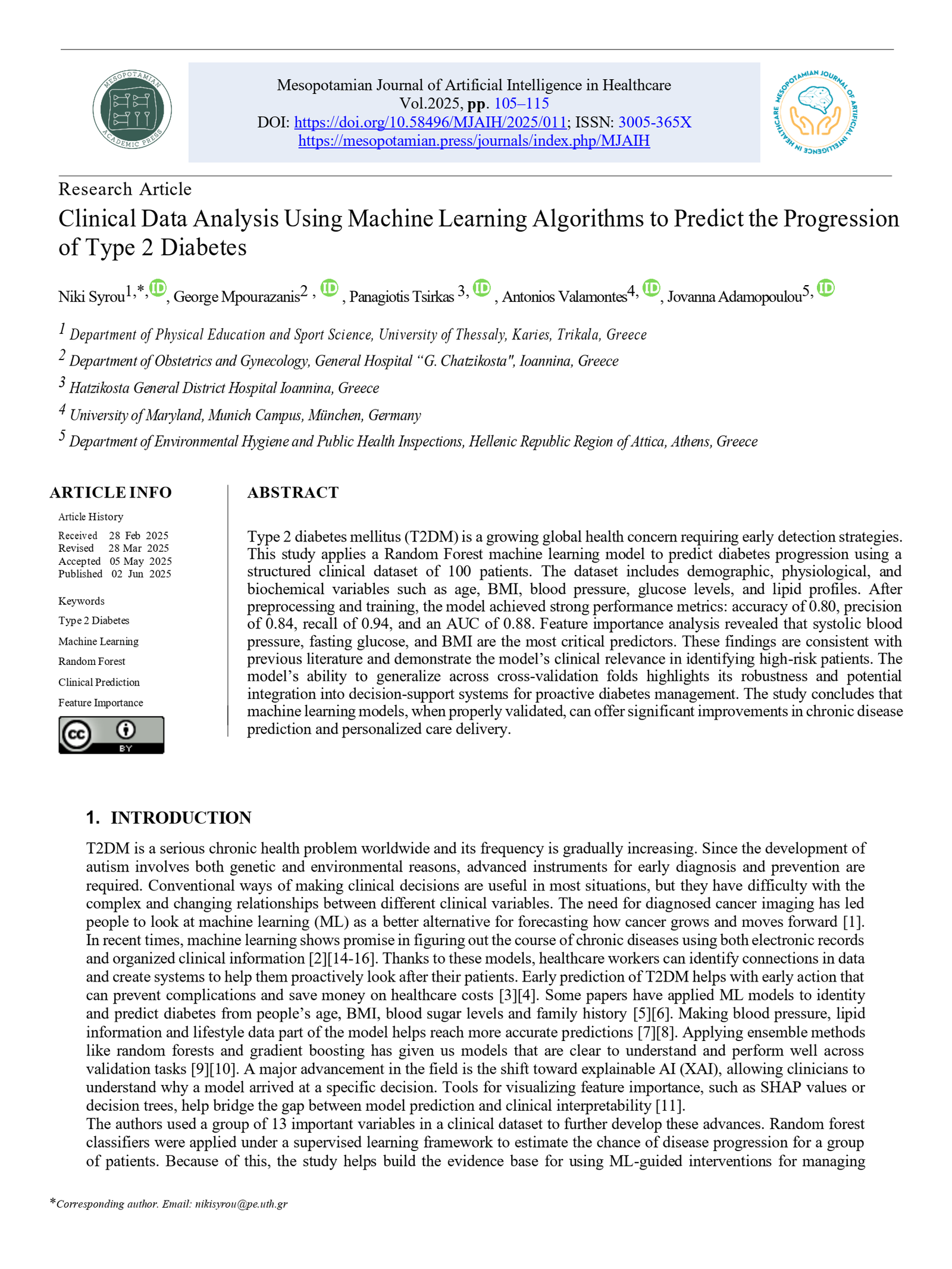Clinical Data Analysis Using Machine Learning Algorithms to Predict the Progression of Type 2 Diabetes
Main Article Content
Abstract
Type 2 diabetes mellitus (T2DM) is a growing global health concern requiring early detection strategies. This study applies a Random Forest machine learning model to predict diabetes progression using a structured clinical dataset of 100 patients. The dataset includes demographic, physiological, and biochemical variables such as age, BMI, blood pressure, glucose levels, and lipid profiles. After preprocessing and training, the model achieved strong performance metrics: accuracy of 0.80, precision of 0.84, recall of 0.94, and an AUC of 0.88. Feature importance analysis revealed that systolic blood pressure, fasting glucose, and BMI are the most critical predictors. These findings are consistent with previous literature and demonstrate the model’s clinical relevance in identifying high-risk patients. The model’s ability to generalize across cross-validation folds highlights its robustness and potential integration into decision-support systems for proactive diabetes management. The study concludes that machine learning models, when properly validated, can offer significant improvements in chronic disease prediction and personalized care delivery.
Article Details
Issue
Section

This work is licensed under a Creative Commons Attribution 4.0 International License.
